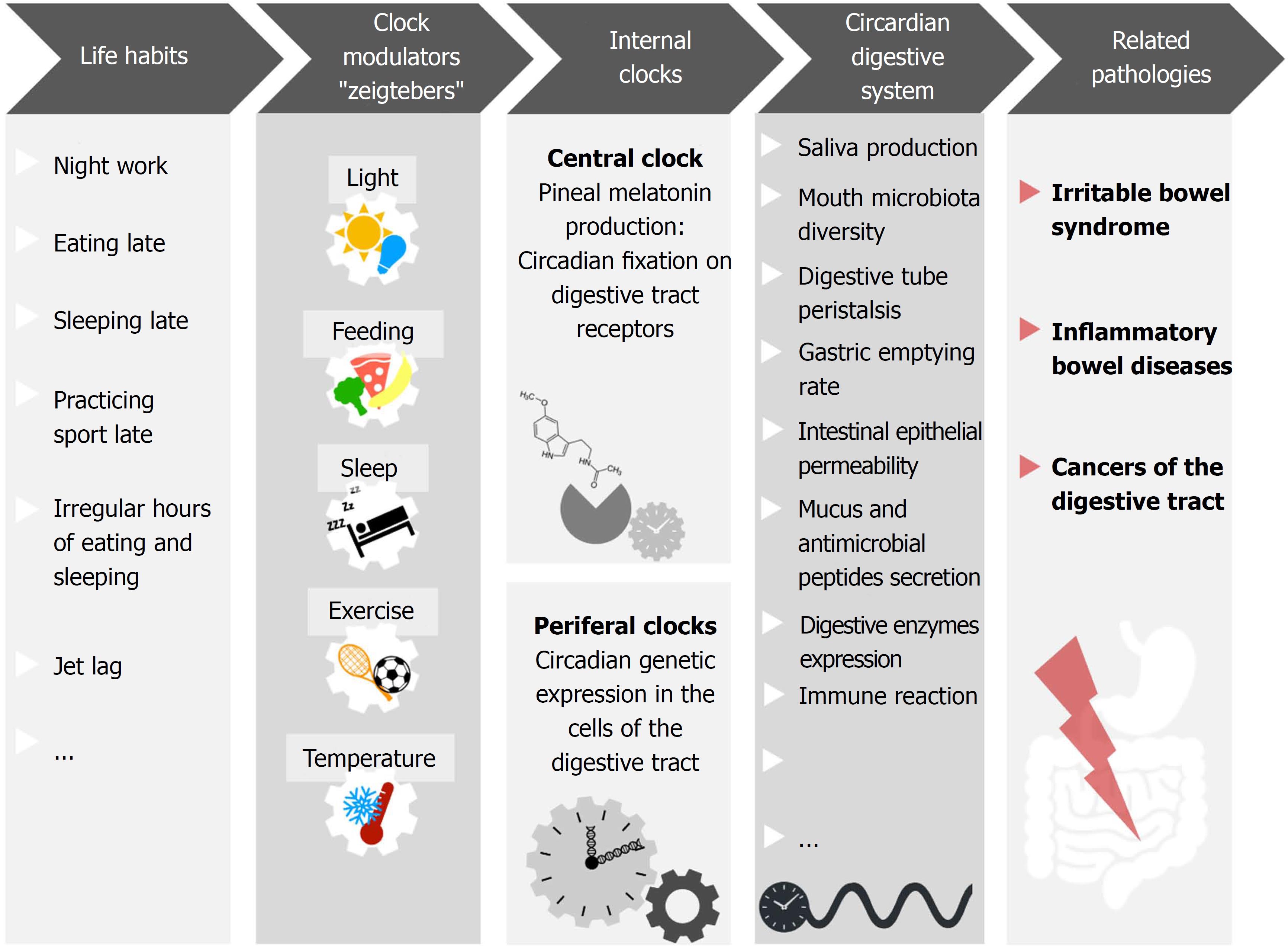Copyright
©The Author(s) 2018.
World J Gastroenterol. Oct 14, 2018; 24(38): 4297-4303
Published online Oct 14, 2018. doi: 10.3748/wjg.v24.i38.4297
Published online Oct 14, 2018. doi: 10.3748/wjg.v24.i38.4297
Figure 1 Numerous mechanisms involved in gastrointestinal homeostasis display daily rhythms.
For example, saliva production, mouth microbiota diversity, digestive tube peristalsis, gastric emptying rate, intestinal epithelial permeability, mucus and antimicrobial peptides secretion, digestive enzymes expression, immune reaction and gut microbiota diversity. Night shift work, light at night, late evening food, late sleep or late physical exercise, as well as irregular meal schedules and jet lag, have been shown to affect the coherence/synchronization of internal circadian rhythms with the environment, affecting the homeostatic rhythms of digestive health parameters. This sequence favors the development of gastrointestinal pathologies such as irritable bowel syndrome, inflammatory bowel diseases, and cancers of the digestive tract.
- Citation: Codoñer-Franch P, Gombert M. Circadian rhythms in the pathogenesis of gastrointestinal diseases. World J Gastroenterol 2018; 24(38): 4297-4303
- URL: https://www.wjgnet.com/1007-9327/full/v24/i38/4297.htm
- DOI: https://dx.doi.org/10.3748/wjg.v24.i38.4297









